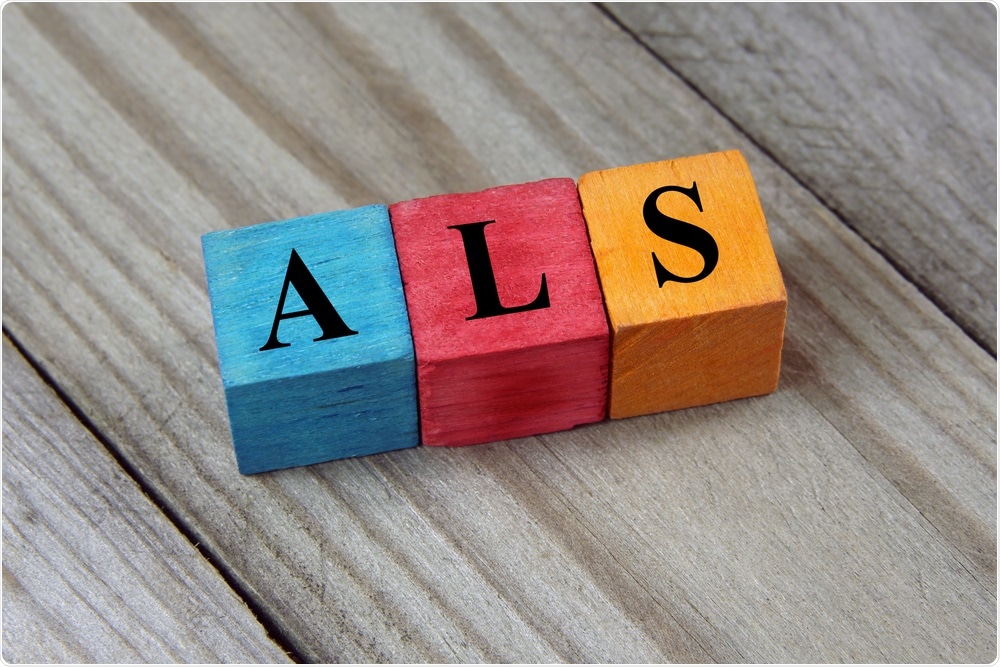Recent research carried out by scientists at the University of Eastern Finland in association with FinnGen and international partners offers a new genetic tool to pinpoint C9orf72 repeat expansion-carrying frontotemporal lobar degeneration or amyotrophic lateral sclerosis patients from huge population-based cohorts.

Image Credit: chrupka/Shutterstock.com
A novel genetic marker distinguishes C9orf72 repeat expansion carriers from non-carriers
The most general genetic cause of both frontotemporal lobar degeneration (FTLD) and amyotrophic lateral sclerosis (ALS) is the hexanucleotide repeat expansion in the C9orf72 gene. It is especially widespread among Finnish FTLD and ALS patients. The identification of the C9orf72 repeat expansion demands specific genetic analyses, which are challenging and not appropriate for large population-based sample sets.
In the current research, scientists used new genetic single nucleotide polymorphisms (SNPs) linked with the C9orf72 expansion to pinpoint potential expansion carriers from huge genotyped patient cohorts in Finland and Europe. The research was published in the Journal of Alzheimer’s Disease.
The researchers used the genetic information of patients carrying and not carrying the C9orf72 expansion obtainable in the large European EADB cohort (A European DNA bank for deciphering the missing heritability of Alzheimer’s disease) and found out SNP markers that distinguished C9orf72 expansion carriers from non-carriers.
Earlier studies have detailed a group of 20 SNPs, which are linked with the C9orf72 repeat expansion in FTLD and ALS patients. Conversely, in the place of this group of SNPs, an earlier unreported SNP referred to as rs139185008 showcased the highest specificity in the Finnish C9orf72 repeat expansion carriers.
The novel SNP associates with ALS and FTLD in the large population-based FinnGen database
The scientists then tested the disease groups to which the novel rs139185008 SNP is linked in the large population-based FinnGen database, which comprises genetic information and medical records of around 300,000 Finns.
FinnGen puts together hospitals and hospital districts, Finnish universities, the Finnish Institute for Health and Welfare (THL), the Finnish Red Cross Blood Service, biobanks, and international pharmaceutical companies to collect and examine genome and health data from 500,000 Finnish biobank participants.
From the FinnGen information, rs139185008 revealed the strongest association with patients having a clinical diagnosis of FTLD and motor neuron disease ALS. The SNP is also highly associated with ALS in the UK Biobank. These observations altogether indicate that this new SNP is a beneficial novel genetic surrogate marker for pinpointing C9orf72 repeat expansion carriers in large, genotyped population-based cohorts.
As the FinnGen database does not directly consist of complex genetic information, like those connected to repeat expansions, the recognized carriers of the SNP rs139185008 need to be examined further in the future through a precise genetic method to ensure that they indeed carry the C9orf72 repeat expansion.
“This will help to evaluate the full potential of the rs139185008 as a novel genetic tool to identify C9orf72 repeat expansion carriers from large, population-based cohorts,” adds Research Director Annakaisa Haapasalo from UEF’s A.I. Virtanen Institute for Molecular Sciences.
This study might be the beginning of other future projects using the FinnGen database to explore genotype-phenotype associations among neurodegenerative diseases. Similar approach using specific SNPs as surrogate markers to detect repeat expansions may also prove useful in the case of other repeat expansion diseases.”
Mikko Hiltunen Professor, Institute of Biomedicine, University of Eastern Finland
The research was headed by Hiltunen and Haapasalo in association with Professor Ville Leinonen from the University of Eastern Finland, Professor Anne Remes from the University of Oulu, Professor Pentti Tienari from the University of Helsinki, Professor Per Kristian Eide from the University of Oslo, and Professor Jean-Charles Lambert from Institut Pasteur de Lille.
MSc Hannah Rostalski, the main author of the study, is an Early-Stage Researcher in the GenomMed Doctoral Programme at UEF. Exploring the link between the C9orf72 repeat expansion and neurodegeneration was the aim of her PhD project. The proficiency of Research Manager Teemu Kuulasmaa from the UEF Bioinformatics Centre was vital in the bioinformatic analyses.
Source:
Journal reference:
Rostalski, H., et al. (2021) A Novel Genetic Marker for the C9orf72 Repeat Expansion in the Finnish Population. Journal of Alzheimer’s Disease. doi.org/10.3233/jad-210599.